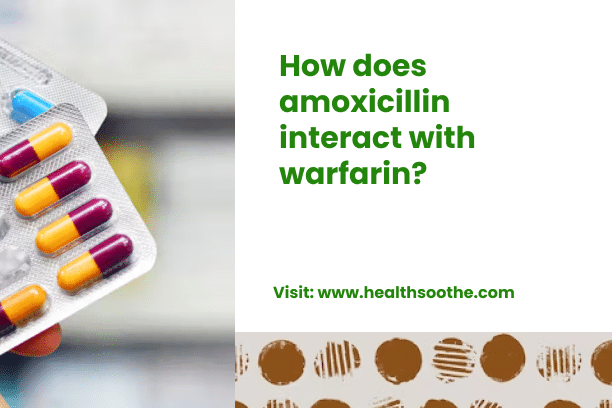PCOS, or Polycystic Ovary Syndrome, is a condition that affects many women of reproductive age. It is a hormonal disorder that can cause a range of symptoms, including irregular periods, weight gain, acne, and excessive hair growth. Despite its prevalence, many people are still unaware of what PCOS is and how it can be managed.
One of the most challenging aspects of PCOS is that the symptoms can vary widely from person to person. Some women may experience only a few mild symptoms, while others may have more severe symptoms that significantly impact their quality of life. As such, it is essential to have a comprehensive understanding of PCOS and its symptoms to be able to manage the condition effectively.
Fortunately, there are many solutions available to help manage PCOS symptoms, including lifestyle changes, medication, and surgery. With the right approach, women with PCOS can live healthy and fulfilling lives. This guide aims to provide a comprehensive overview of PCOS, its symptoms, and the available solutions to help women manage this condition effectively.
Understanding PCOS
What Is PCOS
PCOS stands for Polycystic Ovary Syndrome. It is a common syndrome that affects women of reproductive age. Women with PCOS often have higher levels of androgens (male hormones) and insulin in their bodies, which can lead to a variety of symptoms.
Causes Of PCOS
The exact cause of PCOS is not known, but it is believed to be linked to a combination of genetic and environmental factors. Some of the factors that may contribute to the development of PCOS include:
- Genetics: PCOS tends to run in families, so there may be a genetic component to the disorder.
- Insulin Resistance: Women with PCOS often have higher levels of insulin in their bodies, which can lead to insulin resistance.
- Inflammation: Chronic inflammation may play a role in the development of PCOS.
- Hormonal Imbalances: Women with PCOS often have higher levels of androgens (male hormones) and lower levels of estrogen and progesterone.
PCOS is also associated with the presence of cysts on the ovaries, although not all women with PCOS have cysts.
Symptoms of PCOS
PCOS or Polycystic Ovary Syndrome is a hormonal disorder that affects women of reproductive age. It is characterized by the presence of multiple cysts on the ovaries, which can cause a range of symptoms. Here are some of the most common symptoms of PCOS:
Physical Symptoms
One of the most noticeable physical symptoms of PCOS is acne. Women with PCOS often experience acne on their face, chest, and back. Another physical symptom is hirsutism, which is the excessive growth of hair on the face, chin, chest, and stomach. Women with PCOS may also experience weight gain, especially in the abdomen area. They may also develop skin tags and have oily skin.
Emotional Symptoms
PCOS can also cause emotional symptoms such as anxiety and depression. Women with PCOS may feel anxious about their appearance, especially if they have excess hair growth or acne. They may also experience depression due to the physical symptoms of PCOS and the impact it can have on their self-esteem. PCOS can also cause mood swings, irritability, and fatigue.
Other symptoms of PCOS include irregular periods, missed periods, and a disrupted menstrual cycle. Women with PCOS may also experience dark patches on their skin, particularly on their neck, groin, and underarms. These dark patches are known as acanthosis nigricans and are caused by insulin resistance.
Diagnosing PCOS
PCOS is a complex condition that can be challenging to diagnose. However, with the right medical history, physical examination, and diagnostic tests, it is possible to identify the condition. Here are the three main ways to diagnose PCOS:
Medical History
The first step in diagnosing PCOS is to take a comprehensive medical history. The doctor will ask questions about the patient’s menstrual cycle, weight, and any other symptoms they may be experiencing. The doctor will also ask about the patient’s family history of PCOS or other related conditions. By taking a detailed medical history, the doctor can get a better understanding of the patient’s symptoms and determine if they are consistent with PCOS.
Physical Examination
After taking a medical history, the doctor will perform a physical examination. During the exam, the doctor will check for signs of excess hair growth, acne, and other physical symptoms of PCOS. The doctor will also perform a pelvic exam to check for any abnormalities or cysts on the ovaries.
Diagnostic Tests
Finally, the doctor may order diagnostic tests to confirm the diagnosis of PCOS. These tests may include hormone level tests, blood tests, and ultrasounds. Hormone level tests can help determine if there are any imbalances in the patient’s hormones, which is a common symptom of PCOS. Blood tests can also help rule out other conditions that may have similar symptoms to PCOS. Ultrasounds can help the doctor see if there are any cysts on the ovaries, which is another common symptom of PCOS.
Treatment And Management Of PCOS
Lifestyle Changes
Lifestyle changes are the first line of treatment for PCOS. These changes include weight loss, exercise, and a healthy diet. Losing just 5% to 10% of body weight can help regulate menstrual cycles and improve insulin resistance. A low-carbohydrate, high-protein diet may also be beneficial for women with PCOS.
Medication
Medications can be used to regulate menstrual cycles, reduce insulin resistance, and control symptoms such as acne and excess hair growth. Birth control pills, metformin, and anti-androgen medications are commonly prescribed.
Surgical Procedures
In some cases, surgical procedures may be recommended to manage PCOS. Ovarian drilling is a minimally invasive procedure that involves making small holes in the ovaries to reduce androgen production. In vitro fertilization (IVF) may also be an option for women with PCOS who are struggling with infertility.
It’s important to note that while these treatments can be effective, there is no cure for PCOS. Treatment is focused on managing symptoms and preventing complications such as diabetes and heart disease. Women with PCOS should work closely with their healthcare provider to develop a personalized treatment plan that addresses their individual needs.





